calsfoundation@cals.org
Decatur (Benton County)
| Latitude and Longitude: | 36°20’09″N 094°27’39″W |
| Elevation: | 1,234 feet |
| Area: | 4.47 square miles (2020 Census) |
| Population: | 1,773 (2020 Census) |
| Incorporation Date: | May 25, 1908 |
Historical Population as per the U.S. Census:
|
1810 |
1820 |
1830 |
1840 |
1850 |
1860 |
1870 |
1880 |
1890 |
1900 |
|
– |
– |
– |
– |
– |
– |
– |
– |
– |
– |
|
1910 |
1920 |
1930 |
1940 |
1950 |
1960 |
1970 |
1980 |
1990 |
2000 |
|
246 |
424 |
413 |
358 |
350 |
415 |
847 |
1,013 |
918 |
1,314 |
|
2010 |
2020 |
|
|
|
|
|
|
|
|
|
1,699 |
1,773 |
|
|
|
|
|
|
|
Decatur is a second-class city in Benton County, not far from the northwestern corner of Arkansas. About fifteen miles west of Rogers (Benton County), Decatur is in the Ozark hills about halfway between Sulphur Springs (Benton County) and Siloam Springs (Benton County) on State Highway 59.
The first known white settler on the land that would become Decatur was William F. Burrow, who was farming in the area before Arkansas became a state in 1836. Burrow chose the land because of its proximity to a fresh-water spring, later given the name St. Elmo Spring. He received a formal deed to his forty acres of land from the U.S. government in 1854. Burrow and his neighbors grew various crops, including tobacco and strawberries. Following the Battle of Pea Ridge in March 1862, Benton County was in the hands of Federal forces, but the war had less impact on the farms of western Benton County due, perhaps, to lower population and other factors.
First Baptist Church was organized in the growing community in 1869. At that time, the settlers referred to their settlement as Corner Springs. When they applied for a post office in 1882, postal authorities rejected the name Corner Springs. Everard Mitchell, who was leading the effort to obtain a post office, then suggested that the community be named Mitchell, but that application was also refused. Mitchell then proposed that the community be named for Stephen Decatur, a hero of the War of 1812, who had relatives in the area. Postal authorities agreed to that suggestion, and the name became official in 1883. Around that time, John Allensworth opened one of the first stores in Decatur. Arthur Tillman began a city newspaper, the Decatur Advance, in 1895.
In 1893, the Kansas City, Pittsburg and Gulf Railroad (later the Kansas City Southern) completed a line through western Benton County that stopped in Decatur. Strawberries and peaches were grown in the area and shipped out by rail, but both crops were failing in the early twentieth century. Apple orchards were already succeeding in other parts of the county, and the apple industry enjoyed some brief success in the Decatur area as well.
Early in the twentieth century, the city was flourishing, with two hotels, three general stores, a blacksmith, a livery barn, two churches, a school, and a large shipping yard. Decatur also boasted of three apple evaporators. After 1919, disease devastated the apple industry in Decatur. For a time, green beans were the primary crop around the city. Dutch immigrants worked in the fields and in the city businesses. The Holland-American Canning Company flourished for a few years in Decatur. A city park was built around 1920. Then, during the Great Depression, the State Bank of Decatur closed, and more farmers lost their livelihood due to low prices for crops and to crop diseases.
Lloyd Peterson is credited with reviving the city and the surrounding area by developing the poultry industry in Decatur. He bred a meatier chicken and cooperated with the Bredehoelt family to transport his chickens to market. Pluss Poultry moved from Siloam Springs to Decatur after World War II, although it was later consolidated into the Simmons company and moved back to Siloam Springs. The company was the target of a strike by union members in 1951. The Bredehoeft trucking industry remained as one of the largest businesses in Decatur for many years. In 1950, several citizens donated a total of ten acres to the Arkansas Game and Fish Commission for the creation of Crystal Lake northeast of Decatur. Peterson spearheaded the construction of Crystal Lake Airport near the lake.
In 1954, city leaders succeeded in their efforts to have Decatur named an All-America City, which led to national attention. Around the same time, Decatur began an annual community barbecue. The event includes a car show, a parade, a concert, a beauty contest, and booths for food and for arts and crafts. The Decatur School District includes both an elementary school and a high school. Though the population of Decatur has historically been white and non-Hispanic, the 2010 census found that the city population had become twenty-eight percent Hispanic. The growing population and the increasing presence of Latinos make Decatur very similar to neighboring communities in Benton County.
In 2013, Blake Evans, grandson of Lloyd Peterson, who had developed poultry operations in Decatur, founded Crystal Lake Farms, which sold free-rage chickens. It went out of business in 2018 and was bought by Cooks Venture Inc., but this processing plant itself closed in 2023.
For additional information:
Benton County Heritage Committee. History of Benton County, Arkansas. Rogers, AR: Benton County Heritage Committee, 1991.
Black, J. Dickson. History of Benton County, 1836–1936. Little Rock: International Graphics Institute, 1975.
City of Decatur Arkansas. Online at https://decaturarkansas.com/ (accessed February 1, 2024).
Holloway, Maxine. “Decatur, Arkansas: Then and Now.” Benton County Pioneer 42 (July–September 1997): 64–69.
Northcutt, Paul. “Early Decatur.” Benton County Pioneer 27 (Spring 1982): 44–45.
Steven Teske
Butler Center for Arkansas Studies
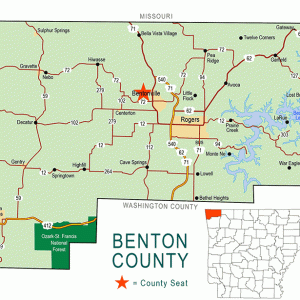 Benton County Map
Benton County Map 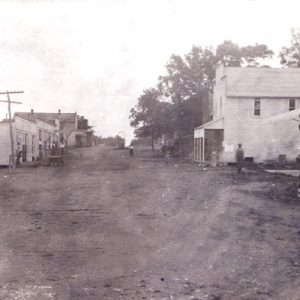 Decatur Street Scene
Decatur Street Scene 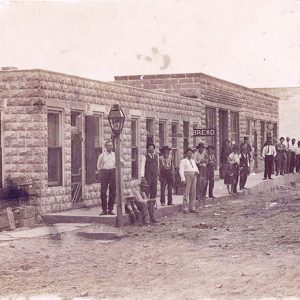 Decatur Street Scene
Decatur Street Scene 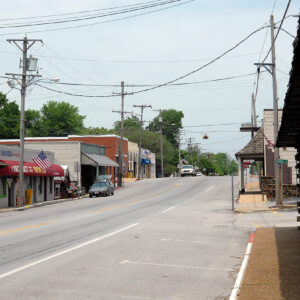 Decatur Street Scene
Decatur Street Scene 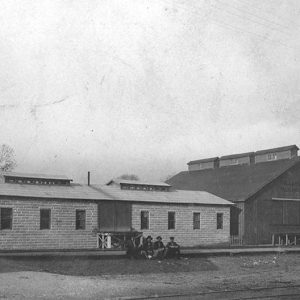 Holland-American Fruit
Holland-American Fruit 




Comments
No comments on this entry yet.